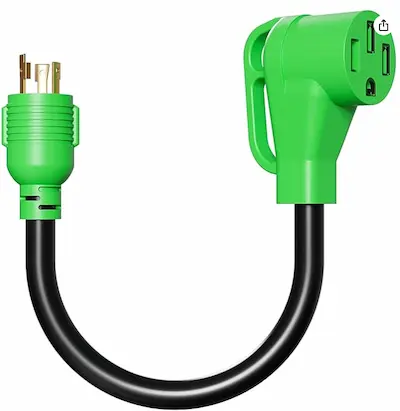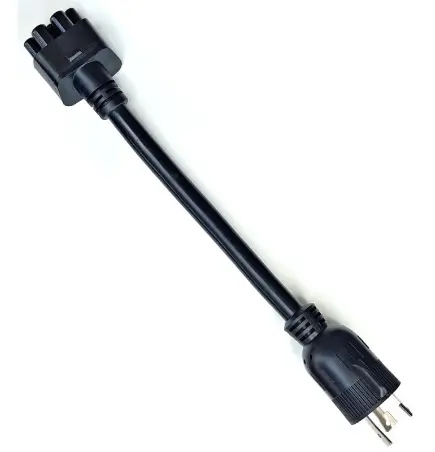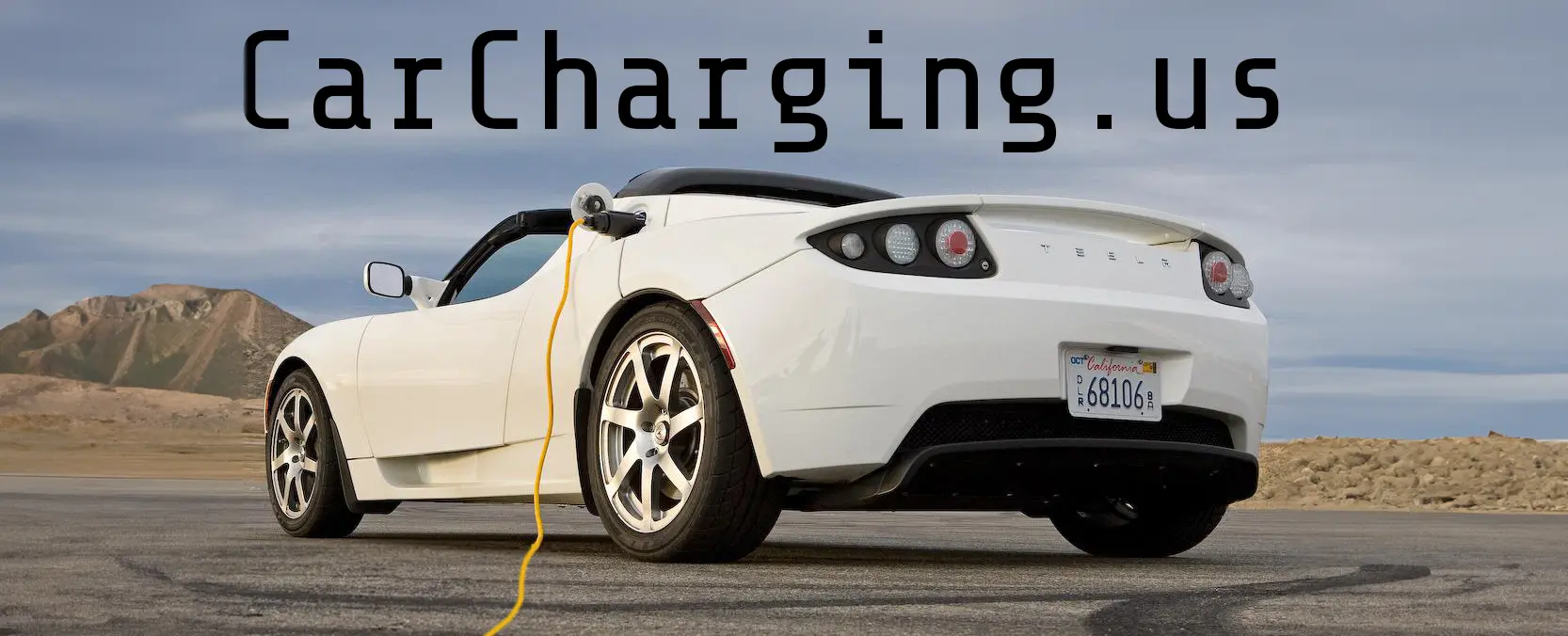Never Use RV Adapters
Since there are so many different receptacle types in North America, you'll find lots of adapters that convert one type of plug/receptacle to another. This is occasionally useful for charging EVs (hence this site), but also very useful for powering RVs from the grid when available so they don't have to use their generator all the time.
But the way these adapters are wired internally for RV use and EV charging use are very different and indeed an RV adapter meant to convert a 120V power source for an RV will never work for charging an EV.
RV adapters generally will have a plug for whatever power source and on the other end have a NEMA 14-50 female receptacle since the NEMA 14-50 is a universal plug used by larger RVs. It offers 240V, 50A. Smaller and older RVs might only have a TT-30 connector, which is a 120V, 30A plug.
Here's an example of one such RV adapter which converts a 120V plug (an unusual L5-30 which might be found at a marina) to a NEMA 14-50. These
are commonly called dogbone adapters for the two bulky ends and thin middle:

120V RV adapters will put the single 120v hot onto BOTH of the NEMA 14-50 hots, and the neutral to neutral. This is because RVs have a 240V split phase panel just like your house does. Those RV adapters will give 120V to each split phase relative to neutral. Of course, this means it'll give 0V for anything that runs off 240V (like the air conditioner), but there's nothing you can do about that with a simple adapter. So this works for RVs in that every 120V appliance gets 120V of power.
But a car charger, which always ignores neutral (there is literally no neutral wire going into the car), and instead only has two hots, will see 0V across those two hots. A proper L5-30 adapter meant for EVs would put the 120V hot onto one of the 14-50 hots and the L5-30 neutral onto the other hot, and in the correct order since many car chargers are picky about which of the two hots it sees 120V on.
So, for example, for that rare L5-30 plug, you'd instead use
an adapter like this one if you had a portable Tesla Mobile Connector:

Bottom line, NEVER use a 120V RV adapter since they simply won't work. Only use EV specific ones. And if you have a Tesla Mobile Connector (which is an awesome mobile EVSE), look for an adapter specific for that. Chances are you'll find one (if Tesla doesn't sell one directly for it). The Tesla Gen 2 adapters have extra safety features like a temperature sensor in the plug.
